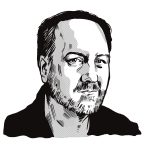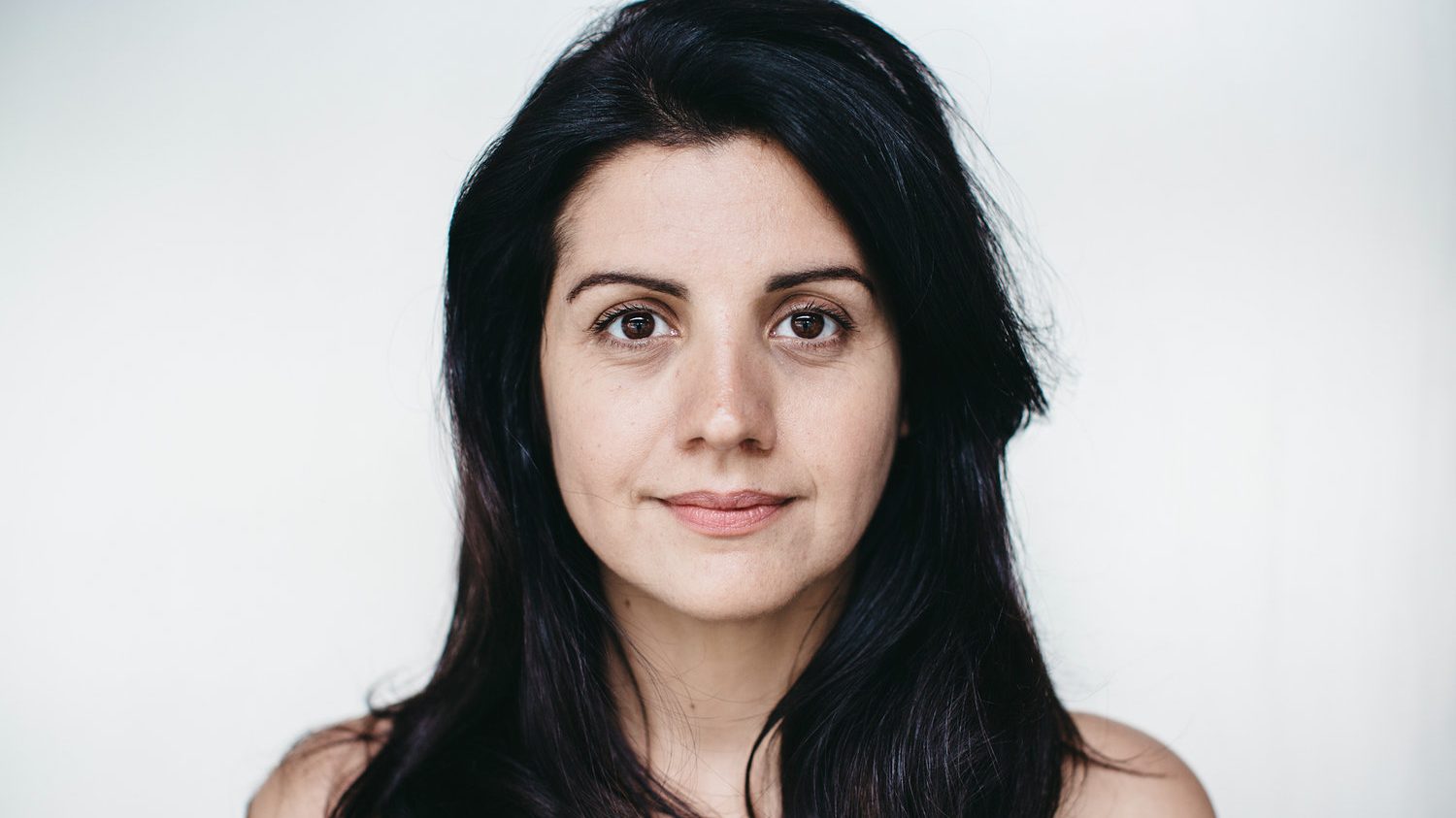Perhaps the first of the twists and turns in the uncommonly twisty-turny life of Stefania Licari occurred during a visit to London aged 18. Sitting on a tube train, she was struck by the dazzling variety of fashions and ethnicities among her fellow passengers and couldn’t help but contrast this with her beautiful, historic but, she now felt, comparatively monocultural hometown of Milan in northern Italy. She felt an instant connection to a place which seemed to reflect her desire to see as much of the world as possible by cramming quite a lot of the world into one city. “I’d better learn some English,” she thought, having silently resolved to move to the UK full-time at the earliest opportunity.
Stefania is just coming to the end of a successful run at the Edinburgh Fringe with her show Medico. Just how a Milanese woman became first an NHS doctor specialising in intensive care and anaesthesia and, subsequently, an actor turned stand up comedian is, as you’d expect, a major part of the show’s narrative.
The next turning point came not in 2004 when Stefania, having finished her medical training in Italy, made the on-the-face-of-it baffling decision to trade Milan for Milton Keynes (“You’d better learn to drink” was the only advice her more well-travelled colleagues gave her), but some seven years later on a flight to Amsterdam.
“This guy was chatting me up, and I wasn’t interested… When you’re trying not to engage with someone, your subconscious takes over the conversation, so when he asked me what I did for a living I replied ‘doctor’ without even thinking. But then he asked ‘if money were no object, what would you really LIKE to do?’ And almost without realising, I replied ‘actress’.”
The ease with which she’d hit upon that response startled her, and revived fond childhood memories of having wanted to act when she was a little girl, before circumstances (and her desire to help people) steered her towards the more “sensible” back-up option of medicine. By the time the plane landed in Amsterdam (and her spurned suitor wandered off) Stefania’s mind was made up and she began to research drama schools. When she was accepted by her first choice, East 15, she simply took this as a sign of the universe applauding her decision.
Stefania’s rival vocations, walking the wards and treading the boards, were to come together a decade or so later. She’d returned to medicine when the COVID pandemic struck – her intensive care skills had never been in more urgent demand and besides, there wasn’t a lot of acting work to be had during lockdown.
Inevitably, she contracted the virus herself after just three weeks, leading to a period of miserable isolation. “Okay, I told myself, I need to change my mindset,” she says. “How can I turn this tragic situation into an opportunity? I can work hard in the hospital to make people better, I can work on my own health, I can support my friends and family – remotely – but how can I put my acting to good use?”
“What really seemed to help when things were getting too dramatic was making jokes, and I’d also taken two years of classes at the Gaulier clown school in Paris, so comedy seemed like an obvious thing to do.”
Stefania’s dilemma as to what form this comedy would take resolved itself by typically circuitous means… She found herself trying to do a “self-tape” (an audition piece an actor records at home, usually on their phone, to be submitted to a casting director) in the intensive care unit, having been given her first chance at an acting job since the start of the pandemic… Finding it impossible to stick to the script amid all the noise and turmoil of a hospital in full panic mode, she instead cut loose with five minutes of bleakly hilarious improvisation about the unbearable stress of being a doctor on a COVID ward.
Friends and colleagues who saw this rant told her “You’ve got something here” and so the recording became the template for My Doctor’s Advice, a web series which ended up winning nine awards (and being nominated for seven more) at various film festivals. Disgruntled at not getting to walk down any red carpets (the ceremonies were all online, lockdown still being in effect), Stefania bought a small red floor mat which she laid on her kitchen floor so she’d have something to stand on while making acceptance speeches via Zoom.
Stefania’s live show Medico is part high-energy stand-up, part autobiographical monologue with some new embellishments such as songs (in one number, “When I Was Italian”, Stefania bemoans her loss of whatever Mediterranean glamour she may have had upon the receipt of her UK passport) and reflections upon the most recent, and most irksome turning point in her life and indeed the lives of all those living and working in Britain who were born in continental Europe; June 2016.
Stefania reflects sadly that reports of a sudden uptick in casually racist behaviour towards her and her foreign-born NHS co-workers after the Brexit vote were in no way exaggerated. Medico includes one grimly distressing (and, Stefania insists, entirely true) story of an elderly patient who refused to be treated by anyone other than white British doctors or nurses, even as she went into cardiac arrest (she survived, with no improvement in her attitude).
After Edinburgh Stefania’s plan is to tour Medico, with a revised and updated version returning to the Fringe next year. While a natural performer, Stefania confesses to still feeling a flutter of pre-curtain nerves before each show. But surely the pressure on a doctor, especially an intensive care doctor, is far worse? The stakes of failure are, after all, somewhat higher.
Stefania begs to differ: “When you lose a patient – and obviously we lose more in intensive care than in most departments, and during COVID we were losing ten, twenty a day, it was like a war zone…. You feel the loss, but unless you made an obvious mistake – and we try not to – you don’t take the failure personally. You have to remind the patient’s family – and yourself – that you did all you could, that you can’t work miracles, that medicine just isn’t that advanced yet…”
“But if I do a comedy show and nobody laughs, then it’s MY failure. I don’t get to say ‘I did all I could! I can’t work miracles! Comedy just isn’t that advanced yet!”











